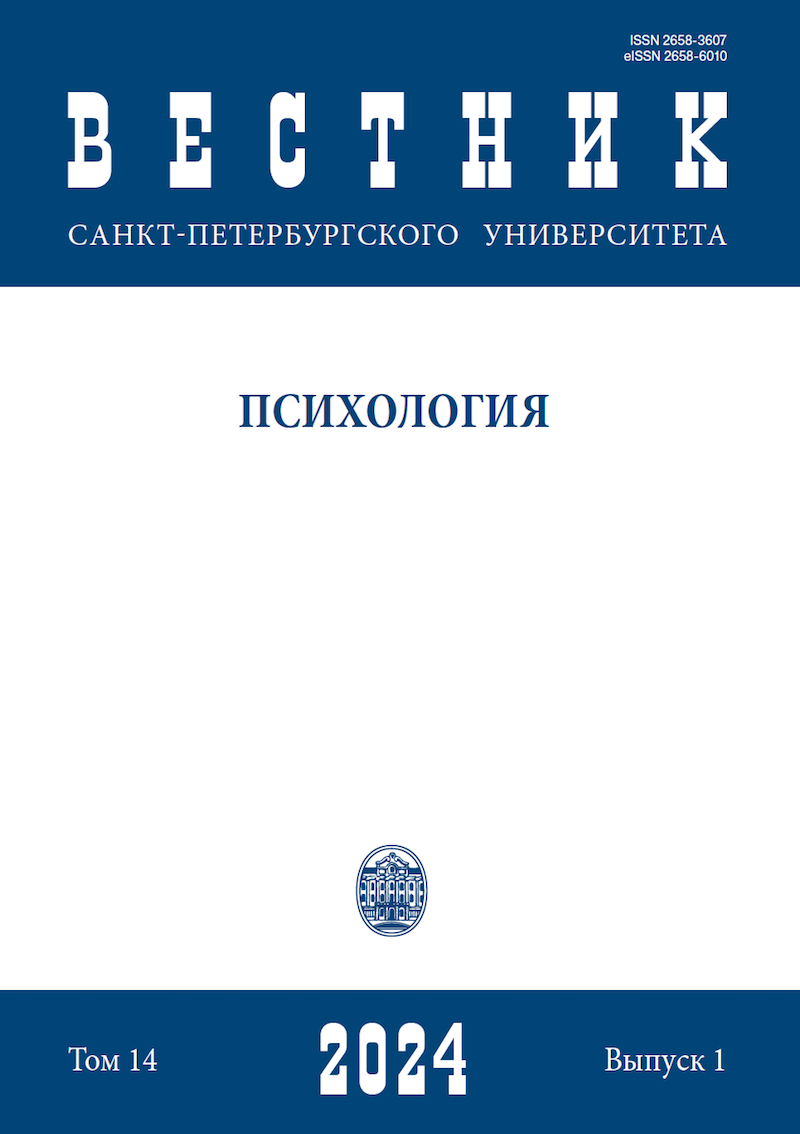Разработка методики «Стратегии конструирования старения»
DOI:
https://doi.org/10.21638/spbu16.2024.110Аннотация
Работа посвящена разработке и психометрической проверке инструмента, направленного на оценку используемых стратегий формирования благополучного старения. В контексте увеличения продолжительности жизни и количества пожилых людей в общей популяции, особо остро встает вопрос сохранения и улучшения качества жизни пожилых людей. В науке накоплен большой объем данных о механизмах и факторах, влияющих на старение. При этом, эти факторы могут быть моделируемы самим человеком. Однако, отсутствуют инструменты, которые позволили бы оценивать эти механизмы и частоту их использования в жизни человека, как актуальной, так и ретроспективной. Участниками исследования стали 170 взрослых в возрасте 40 – 75 лет. На основе теоретического анализа были сформулированы 22 стратегии, каждая из которых оценивалась по 5-ти бальной шкале. Для проверки конвергентной валидности использовались Опросник «Профилактика здорового образажизни», Шкала психологического благополучия К. Рифф, опросник «Восприятие старения», а также вопросы демографической анкеты. В результате эксплоратоного факторного анализа были выделены четыре шкалы: «Стратегии сохранения здоровья», «Метакогнитивные стратегии», «Стратегии саморазвития» и «Генеративные стратегии». Анализ надежности шкал и конфирматорный анализ подтвердили пригодность полученного инструмента, а также его соответствие эмпирическим данным. Анализ конвергентной валидности показал, что выделенные шкалы связаны с показателями здорового образа жизни, психологического благополучия, положительными представлениями о старении и желанием что-то менять в своей жизни ради благополучной старости. Полученные результаты могут быть использованы как для научного изучения механизмов футуризации старения, так и для практической работы по оценке ресурсов для формирования старения и выстраивания индивидуальных траекторий старения.
Ключевые слова:
стратегии конструирования старения, футуризация старения, старение, эффективное старение, валидизация, благополучное старение
Скачивания
Библиографические ссылки
References
Загрузки
Опубликован
Как цитировать
Выпуск
Раздел
Лицензия
Статьи журнала «Вестник Санкт-Петербургского университета. Психология» находятся в открытом доступе и распространяются в соответствии с условиями Лицензионного Договора с Санкт-Петербургским государственным университетом, который бесплатно предоставляет авторам неограниченное распространение и самостоятельное архивирование.




